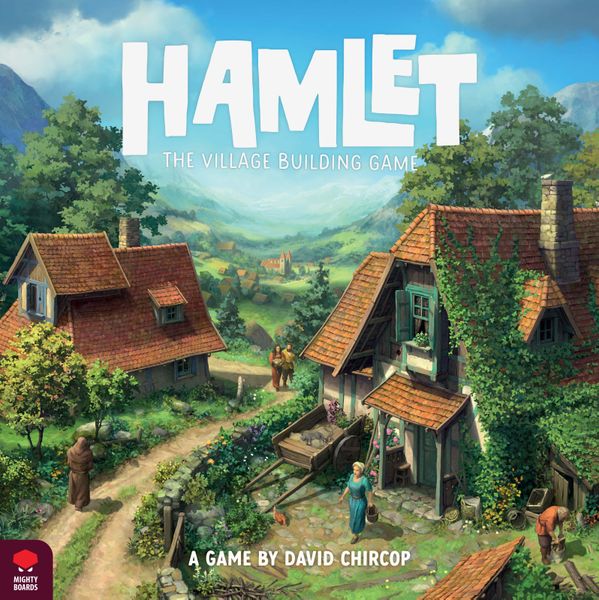Hamlet: The Village Building Game (2022) Board Game
Hamlet: The Village Building Game is a city-building board game released in 2022 by Mighty Boards. Designed by David Chircop and featuring artwork by Yusuf Artun, the game is set in a medieval village where players compete to build the most prosperous settlement.
Game Components of Hamlet: The Village Building Game
How To Setup Hamlet: The Village Building Game
To set up the game, begin by placing the initial village tiles, which include the Market and Town Hall. Each player selects their starting worker meeples and places them on the board. The resource tokens, landmark tiles, and other components are placed within reach of all players. The game starts with a “sleepy village” scenario where players must gradually build up their resources and actions.
Gameplay Mechanics and Game Objective
Mechanics
Game Objective
The primary objective is to score the most points by contributing to the village’s growth. Points are earned through:
Player Experience
In *Hamlet: The Village Building Game*, players start with limited actions, gradually expanding their capabilities by hiring more workers and acquiring donkeys. The game has a slow start, with the initial turns focusing on resource gathering and worker recruitment. As the game progresses, players engage in more complex strategies, such as optimizing resource use and building new structures. The communal resource system creates a dynamic where players must adapt to the changing board state and resource availability.
Pros
Cons
Personal Thoughts on Hamlet: The Village Building Game
*Hamlet: The Village Building Game* is ideal for players who enjoy medium-weight strategy games with a strong focus on resource management and engine building. While it offers a unique and engaging gameplay experience, it may not be the best fit for those who prefer quick-paced games or are easily frustrated by visual clutter and lengthy game sessions. The game excels at creating a sense of community and village growth, making it a great choice for those who appreciate thematic depth and strategic complexity.
We are supported by our audience. When you purchase through links on our site, we may earn an affiliate commission, at no extra cost for you. Learn more.

